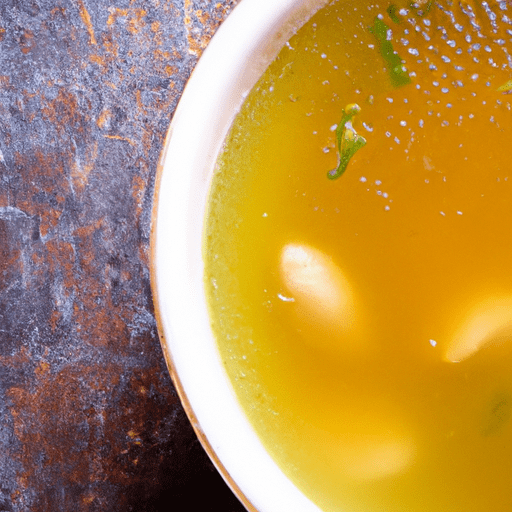The Magic of Chicken Broth
Chicken broth is a versatile and essential ingredient in the culinary world. It has been used for centuries to add depth and flavor to various dishes. Whether you’re making a comforting soup or creating a savory sauce, chicken broth is a key component that can elevate your cooking to new heights.
Taste and Flavor
Chicken broth has a rich and aromatic flavor that is both comforting and satisfying. The slow simmering of chicken bones, along with vegetables and herbs, creates a deep umami taste. It offers a delicate balance of savory notes with subtle hints of sweetness. The broth’s warm and inviting aroma can instantly transport you to cozy kitchens and nostalgic family gatherings.
Common Uses in Cooking
Chicken broth is extremely versatile and can be used in a wide range of recipes. It serves as the perfect base for soups, stews, and casseroles, providing a flavorful foundation to build upon. It can also be used to cook grains, such as rice or quinoa, infusing them with a delightful taste. Additionally, chicken broth brings life to sauces, gravies, and pan drippings, imparting richness and depth to these culinary creations.
Nutritional Value
Apart from its amazing taste, chicken broth offers several health benefits. It is a low-calorie, fat-free liquid that provides a good source of protein, minerals, and vitamins. The slow simmering extracts valuable nutrients from the bones, such as calcium, magnesium, and phosphorus, which are essential for maintaining strong bones and teeth. The collagen present in chicken broth promotes skin elasticity, joint health, and supports digestive health.
History and Interesting Facts
Chicken broth has a long history dating back to ancient times. The consumption of broth in the form of a warm, comforting liquid is believed to have healing properties. In Chinese traditional medicine, chicken broth is often prescribed as a revitalizing tonic to improve overall well-being.
Interestingly, chicken broth has also been a popular home remedy for colds and flu for many generations. The warmth and nourishment it provides can help soothe a sore throat, clear congestion, and boost the immune system.
Homemade vs. Store-bought
While store-bought chicken broth is convenient, nothing compares to the flavor and quality of homemade broth. Making your own chicken broth allows you to control the ingredients, adjust the seasoning, and ensures a higher nutritional value. Plus, the aroma that fills your kitchen while simmering a pot of broth is absolutely delightful.
Chicken broth is truly a magical ingredient in the kitchen. Its robust flavor, versatility, and nutritional benefits make it a staple in countless recipes. Whether you’re adding it to soups, sauces, or using it as a healing tonic, chicken broth is sure to amplify the taste and bring comfort to your cooking. So next time you’re in the kitchen, why not simmer your own pot of this liquid gold and experience the difference it can make in your culinary creations?
Chicken Broth
Origin: Chicken broth has been consumed and used in cooking for centuries. The exact origin of chicken broth is unknown, but the popularity of broth-based soups can be traced back to ancient times, with recipes found in both Eastern and Western cultures.
Common Uses: Chicken broth is commonly used as a base for soups, stews, and sauces. It can be used as a flavor enhancer in a variety of recipes, including risottos, gravies, and stir-fries. It is also often used to cook grains like rice or quinoa to infuse them with flavor.
Nutritional Benefits: Chicken broth is a good source of vitamins and minerals. It is low in calories and fat but rich in protein. It contains essential amino acids, such as glycine and proline, which are believed to have various health benefits, including supporting digestion and joint health.
Unique Properties: Chicken broth has a unique ability to add depth of flavor and richness to a dish. Its gelatinous consistency, derived from collagen in the bones, gives it a rich mouthfeel when cooked. This property also allows it to form a gel-like texture when refrigerated, which can be useful for making aspics and thickening sauces.
Historical Significance: Broths have been cherished for their nourishing and healing properties throughout history. In traditional medicine, chicken broth has been used as a remedy for colds and flu, as it is believed to help relieve congestion and ease symptoms. Additionally, during periods when food was scarce, chicken broth made from leftover bones was an economical way to make use of every part of the chicken.
Please note that while chicken broth is generally beneficial, individual dietary needs may vary. It is always recommended to consult a healthcare professional or registered dietitian for personalized advice.




Use the share button below if you liked it.
It makes me smile, when I see it.